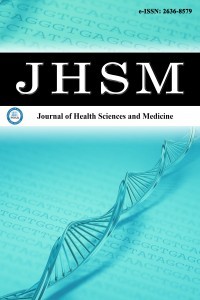1.
Sager R. Expression genetics in cancer: shifting the focus fromDNA to RNA. Proc Natl Acad Sci USA. 1997;94(3):952-955.doi:10.1073/pnas.94.3.952
2.
You JS, Jones PA. Cancer genetics and epigenetics: two sidesof the same coin? Cancer Cell. 2012;22(1):9-20. doi:10.1016/j.ccr.2012.06.008
3.
Shen H, Laird PW. Interplay between the cancer genome andepigenome. Cell. 2013;153(1):38-55. doi:10.1016/j.cell.2013.03.008
4.
Ganju A, Khan S, Hafeez BB, et al. miRNA nanotherapeutics forcancer. Drug Discov Today. 2017;22(2):424-432. doi:10.1016/j.drudis.2016.10.014
5.
Krol J, Loedige I, Filipowicz W. The widespread regulationof microRNA biogenesis, function and decay. Nat Rev Genet.2010;11(9):597-610. doi:10.1038/nrg2843
6.
Finnegan EF, Pasquinelli AE. MicroRNA biogenesis: regulatingthe regulators. Crit Rev Biochem Mol Biol. 2013;48(1):51-68. doi:10.3109/10409238.2012.738643
7.
Wu K, He J, Pu W, Peng Y. The role of exportin-5 in microRNAbiogenesis and cancer. Genomics Proteomics Bioinformatics.2018;16(2):120-126. doi:10.1016/j.gpb.2017.09.004
8.
Shomron N, Levy C. MicroRNA-biogenesis and pre-mRNAsplicing crosstalk. J Biomed Biotechnol. 2009;2009:594678.doi:10.1155/2009/594678
9.
Bartel DP. MicroRNAs: target recognition and regulatory functions.Cell. 2009;136(2):215-233. doi:10.1016/j.cell.2009.01.002
10.
Di Leva G, Garofalo M, Croce CM. MicroRNAs in cancer. AnnuRev Pathol. 2014;9(1):287-314. doi:10.1146/annurev-pathol-012513-104715
11.
Arnold M, Sierra MS, Laversanne M, Soerjomataram I, JemalA, Bray F. Global patterns and trends in colorectal cancerincidence and mortality. Gut. 2017;66(4):683-691. doi:10.1136/gutjnl-2015-310912
12.
Mármol I, Sánchez-de-Diego C, Pradilla Dieste A, Cerrada E,Rodriguez Yoldi MJ. Colorectal carcinoma: a general overviewand future perspectives in colorectal cancer. Int J Mol Sci.2017;18(1):197 doi:10.3390/ijms18010197
13.
Fleming M, Ravula S, Tatishchev SF, Wang HL. Colorectalcarcinoma: pathologic aspects. J Gastrointest Oncol. 2012;3(3):153-173. doi:10.3978/j.issn.2078-6891.2012.030
14.
Tate JG, Bamford S, Jubb HC, et al. COSMIC: the catalogueof somatic mutations in cancer. Nucleic Acids Res.2018;47(D1):D941-D947. doi:10.1093/nar/gky1015
15.
Zhu G, Pei L, Xia H, Tang Q, Bi F. Role of oncogenic KRAS inthe prognosis, diagnosis and treatment of colorectal cancer. MolCancer. 2021;20(1):143. doi:10.1186/s12943-021-01441-4
16.
Gutierrez A, Demond H, Brebi P, Ili CG. Novel methylationbiomarkers for colorectal cancer prognosis. Biomolecules.2021;11(11):1722. doi:10.3390/biom11111722
17.
Jung G, Hernández-Illán E, Moreira L, Balaguer F, Goel A.Epigenetics of colorectal cancer: biomarker and therapeuticpotential. Nat Rev Gastroenterol Hepatol. 2020;17(2):111-130.doi:10.1038/s41575-019-0230-y
18.
Tanoglu A, Balta AZ, Berber U, et al. MicroRNA expressionprofile in patients with stage II colorectal cancer: a Turkishreferral center study. Asian Pac J Cancer Prev. 2015;16(5):1851-1855. doi:10.7314/apjcp.2015.16.5.1851
19.
Muhammad S, Kaur K, Huang R, et al. MicroRNAs in colorectalcancer: role in metastasis and clinical perspectives. World JGastroenterol. 2014;20(45):17011-17019. doi:10.3748/wjg.v20.i45.17011
20.
Jenike AE, Halushka MK. miR-21: a non-specific biomarker ofall maladies. Biomark Res. 2021;9(1):18. doi:10.1186/s40364-021-00272-1
21.
He L, He X, Lim LP, et al. A microRNA component of the p53tumour suppressor network. Nature. 2007;447(7148):1130-1134.doi:10.1038/nature05939
22.
Esquela-Kerscher A, Slack FJ. Oncomirs - microRNAs with arole in cancer. Nat Rev Cancer. 2006;6(4):259-269. doi:10.1038/nrc1840
23.
Bandara KV, Michael MZ, Gleadle JM. MicroRNA biogenesis inhypoxia. Microrna. 2017;6(2):80-96. doi:10.2174/2211536606666170313114821
24.
Ahluwalia P, Kolhe R, Gahlay GK. The clinical relevance ofgene expression based prognostic signatures in colorectalcancer. Biochim Biophys Acta Rev Cancer. 2021;1875(2):188513.doi:10.1016/j.bbcan.2021.188513
25.
Sun L, Fang Y, Wang X, et al. miR-302a inhibits metastasis andcetuximab resistance in colorectal cancer by targeting NFIBand CD44. Theranostics. 2019;9(26):8409-8425. doi:10.7150/thno.36605
26.
Su R, Wu X, Tao L, Wang C. The role of epigenetic modifications incolorectal cancer metastasis. Clin Exp Metastasis. 2022;39(4):521-539. doi:10.1007/s10585-022-10163-w
27.
Van Cutsem E, Cervantes A, Nordlinger B, Arnold D. Metastaticcolorectal cancer: ESMO Clinical Practice Guidelines fordiagnosis, treatment and follow-up. Ann Oncol. 2014;25(Suppl3):iii1-iii9. doi:10.1093/annonc/mdu260
28.
Hong Y, Liang H, Uzair ur R, et al. miR-96 promotes cellproliferation, migration and invasion by targeting PTPN9 in breastcancer. Scientif Rep. 2016;6(1):37421. doi:10.1038/srep37421
29.
Yu S, Lu Z, Liu C, et al. miRNA-96 suppresses KRAS and functionsas a tumor suppressor gene in pancreatic cancer. Cancer Res.2010;70(14):6015-6025. doi:10.1158/0008-5472.Can-09-4531
30.
Chen X, Guo X, Zhang H, et al. Role of miR-143 targeting KRASin colorectal tumorigenesis. Oncogene. 2009;28(10):1385-1392.doi:10.1038/onc.2008.474
31.
Lin S, Gregory RI. MicroRNA biogenesis pathways in cancer. NatRev Cancer. 2015;15(6):321-333. doi:10.1038/nrc3932
32.
Szczyrek M, Grenda A, Kuznar-Kaminska B, et al. Methylationof DROSHA and DICER as a biomarker for the detection of lungcancer. Cancers. 2021;13(23):6139. doi:10.3390/cancers13236139
33.
Sung H, Jeon S, Lee KM, et al. Common genetic polymorphisms ofmicroRNA biogenesis pathway genes and breast cancer survival.BMC Cancer. 2012;12:195. doi:10.1186/1471-2407-12-195
34.
Galka-Marciniak P, Urbanek-Trzeciak MO, Nawrocka PM, etal. Somatic mutations in miRNA genes in lung cancer-potentialfunctional consequences of non-coding sequence variants.Cancers. 2019;11(6):793. doi:10.3390/cancers11060793
35.
Chen HY, Wang ML, Laurent B, et al. Musashi-1 promotes stress-induced tumor progression through recruitment of AGO2.Theranostics. 2020;10(1):201-217. doi:10.7150/thno.35895
36.
Ke HL, Chen M, Ye Y, et al. Genetic variations in micro-RNA biogenesis genes and clinical outcomes in non-muscle-invasive bladder cancer. Carcinogenesis. 2013;34(5):1006-1011.doi:10.1093/carcin/bgt006
37.
Rakheja D, Chen KS, Liu Y, et al. Somatic mutations in DROSHAand DICER1 impair microRNA biogenesis through distinctmechanisms in Wilms tumours. Nat Commun. 2014;2:4802.doi:10.1038/ncomms5802
38.
Boni V, Zarate R, Villa JC, et al. Role of primary miRNApolymorphic variants in metastatic colon cancer patientstreated with 5-fluorouracil and irinotecan. Pharmacogenomics J.2011;11(6):429-436. doi:10.1038/tpj.2010.58
39.
Testa U, Pelosi E, Castelli G. Colorectal cancer: geneticabnormalities, tumor progression, tumor heterogeneity, clonalevolution and tumor-initiating cells. Med Sci. 2018;6(2):31. doi:10.3390/medsci6020031

